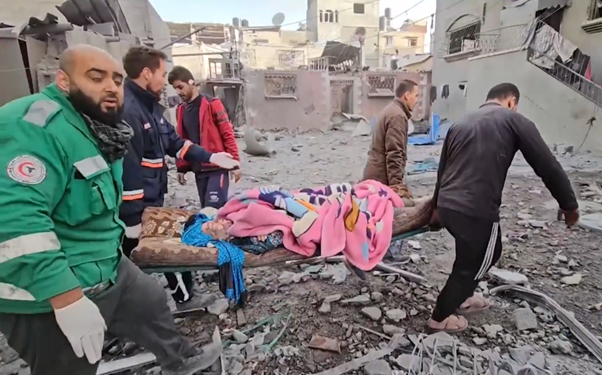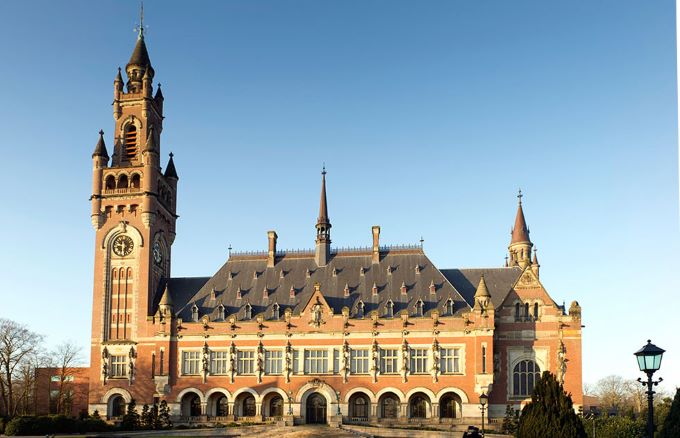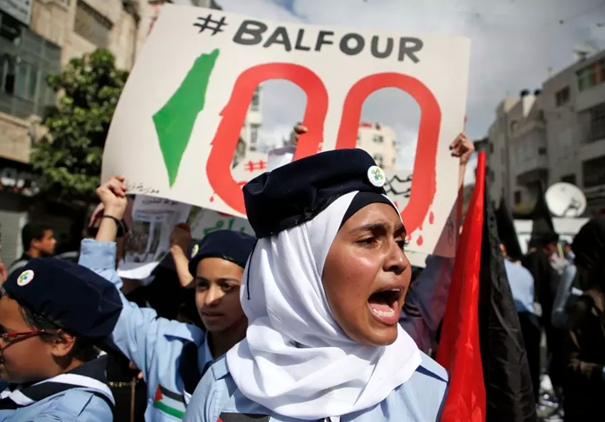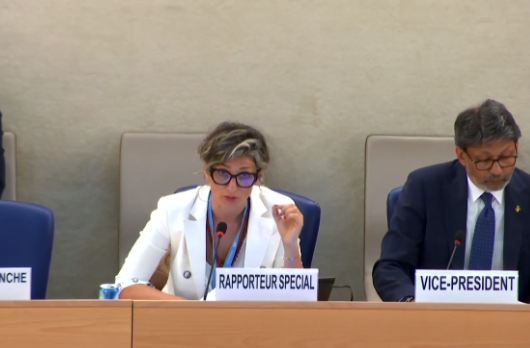75 Days and 75 Years of Ethnic Cleansing, Massacres, and War Crimes

The ongoing humanitarian crisis in the Gaza Strip has reached unprecedented levels, underscored by the continuous, intensive Israeli airstrikes on the Jabalia refugee camp on 17th December, 2023, and in the following days, resulting in a tragic loss of lives and numerous injuries. This incident sheds light on the severe challenges faced by the Jabalia camp, established by the United Nations in the aftermath of the 1948 War. With a considerable population of Palestinian refugees, the camp grapples with acute overcrowding and substandard living conditions, magnifying the impact of airstrikes on its vulnerable residents. This distressing situation, as well as others highlighted in this article, underscores the pressing need for heightened attention and coordinated international efforts to address the deepening crisis in the region.
Challenges Faced by Jabalia Refugee Camp:
The Jabalia refugee camp, characterised by limited living space, forces residents to build shelters in close proximity, leaving minimal room for recreational and social activities. The Jabalia refugee camp, spanning 1.4 square kilometres, finds itself in stark contrast to Monaco, the most densely populated country in the world. While Monaco boasts a surface area of 2.1 square kilometres, it is home to approximately 36,000 people, resulting in an astounding population density of 18,750 inhabitants per square kilometre. In comparison, Jabalia's density is nearly double that of Monaco, exacerbating the difficulties faced by its residents. Additionally, the lack of space has led to the construction of precarious structures, risking collapse and further endangering the lives of its inhabitants. Regrettably, this is not the first time Jabalia has been targeted, as Israeli airstrikes have plagued the camp, claiming innocent lives and causing substantial damage.
One of the deadliest attacks occurred on 31st October, 2023, resulting in the death of at least 50 Palestinians and trapping over 100 civilians beneath the rubble. While the Israel Defense Forces (IDF) claimed the strike aimed to eliminate a Hamas commander linked to the 7th October attack, Hamas refuted these claims, asserting the absence of any of its commanders in the camp during the airstrike. This raises concerns about the use of military force in densely populated civilian areas, leading to devastating consequences.
Targeting Hospitals:
The humanitarian crisis deepened on 17th December, when the IDF targeted the maternity department of Al Nasser hospital in Khan Younis. One underage girl, Donia Mosen, aged 12 to 14, was killed, and others were injured, further damaging medical facilities. Dr. Zakout, a medical professional at Al Nasser, highlighted the absence of evacuation orders or warnings, emphasising the indiscriminate nature of the attacks on vital healthcare institutions. It is crucial to highlight that Khan Younis, located in southern Gaza, became a destination for numerous Palestinians seeking refuge from both ground offensives and airstrikes initiated by the IDF. The significant migration to the south ensued in response to explicit warnings from Israel about impending military operations in the north. Nonetheless, those who sought sanctuary in southern Khan Younis encountered no respite, as Israel persisted in subjecting the civilian population in both northern and southern governorates of the Gaza strip to sustained bombardment.
As of 20th December, the number of functioning hospitals in Gaza has decreased from 36 to a mere 8, with the remaining facilities facing heavy strikes. This severely limits the region's capacity to provide essential medical care, exacerbating the plight of the already vulnerable population.
Devastating Impact on Families:
As per reports from Gaza health authorities, the State of Israel has been responsible for the complete annihilation of entire Palestinian families. A compiled casualty list, meticulously detailing 6,747 Palestinians killed in the initial 19 days following 7th October, includes information such as ages, genders, and ID numbers. Notably, the list is organised alphabetically by last names, underscoring the disheartening reality of entire family lineages being disrupted.
The first 88 individuals on the list belonged to the al-Stal family, followed by 72 Hassounas, 65 al-Najjars, 60 al-Masrys, and finally, 49 Al-Kurds – all victims of Israeli Defense Forces (IDF) actions in the initial three weeks post-7th October. In early November, Ministry spokesperson Ashraf al-Qudra conveyed that Israel had claimed the lives of more than 100 members of the Astal family.
Adding to this narrative, family members of a Hamas fighter were tragically killed in an Israeli airstrike on their residence. Besides the Hamas fighter, the casualties included his wife and two children, aged 17 and 11. Furthermore, at least five nieces and nephews of the mentioned Hamas fighter were also killed, with the youngest being only 9. A distant relative of the Hamas fighter expressed profound distress, questioning the rationale behind targeting the fighter's family while they were at home, emphasising the impact on innocent lives.
Disturbing Executions by IDF in Gaza City:
The Office of the High Commissioner for Human Rights in Occupied Palestinian Territory (OHCHR OPT) has received distressing reports indicating that the Israeli Defence Forces (IDF) allegedly executed at least 11 unarmed Palestinian men in the Al Remal neighbourhood of Gaza City, pointing to potential war crimes. On 19th December, 2023, the IDF reportedly surrounded and raided the Al Awda building, where families sought refuge. Witness accounts indicate the IDF separated men from women and children, fatally shooting 11 men, predominantly in their late 20s and early 30s, in front of their families. Subsequently, the IDF purportedly directed women and children into a room, where they were either shot at or targeted with a grenade, resulting in reported serious injuries, including to an infant and a child. OHCHR confirmed the killings, but details are under verification; the IDF has not provided information on the incident. Accountability and preventive measures are crucial if allegations are substantiated.
The situation in Gaza is rapidly spiralling into an unprecedented humanitarian crisis, marked by widespread destruction, loss of life, and the erosion of essential services. As of 21st December, the magnitude of Palestinian fatalities has tripled, with the reported death toll surpassing 19,667, including 5,153 women and 7,729 children—amounting to 70% of all fatalities, and leaving 1,697 families grappling with multiple casualties, as documented by the Office for the Coordination of Humanitarian Affairs (OCHA). Moreover, the humanitarian toll has reached alarming proportions, with over 52,586 individuals injured and over 1.9 million Palestinians internally displaced, constituting 85% of the population. Additionally, more than 52,500 housing units lie in ruins, while another 254,000 suffer partial damage. The impact extends to religious structures, with at least 3 churches and 112 mosques sustaining damage. Distressingly, 44% of households report very severe hunger, 11% severe hunger, and 31% moderate hunger, particularly exacerbating the dire situation in the north. The scarcity of clean water compounds the crisis, as there is an absolute lack of access to it in the northern governorates. This comprehensive assessment underscores the urgent need for concerted international efforts to address the multifaceted challenges and alleviate the profound suffering endured by the people of Gaza.
Geneva International Centre for Justice (GICJ) strongly condemns the indiscriminate bombardment of civilian areas and calls for an immediate ceasefire to prevent further loss of life and suffering in Gaza. The international community must unite to confront the violence imposed on Palestinian civilians by Israel, the occupying state, and strive towards an enduring and equitable resolution to the protracted occupation of Palestinian territories.
Palestine, Nakba, occupation, ethnic cleansing, refugees, displaced persons, accountability, Geneva International Centre for Justice
|
South Africa's claims of Israeli genocide to be heard at the ICJ |
Balfour’s Legacy in Palestine: A Century of Unjust Reign |
HRC53: "Israel transformed the OPT in an open-air prison" |
For more information,
https://www.ochaopt.org/content/hostilities-gaza-strip-and-israel-reported-impact-day-73
https://www.unrwa.org/where-we-work/gaza-strip/jabalia-camp







